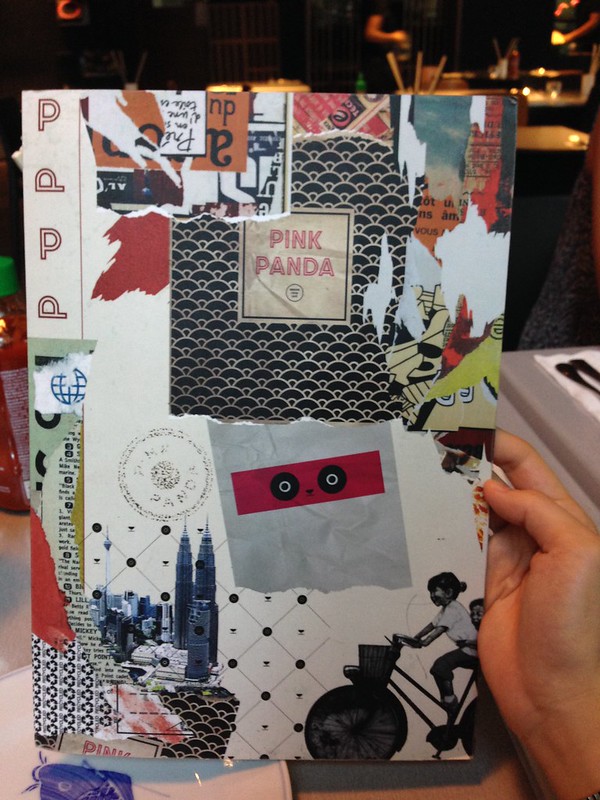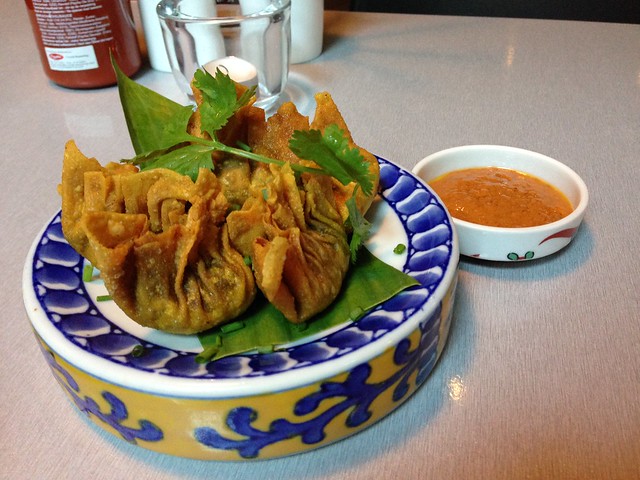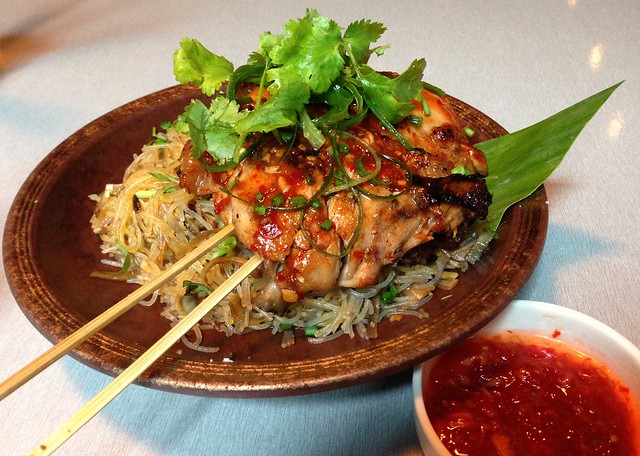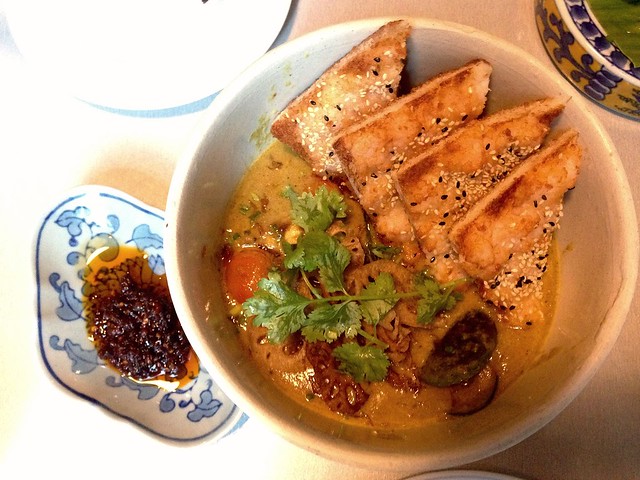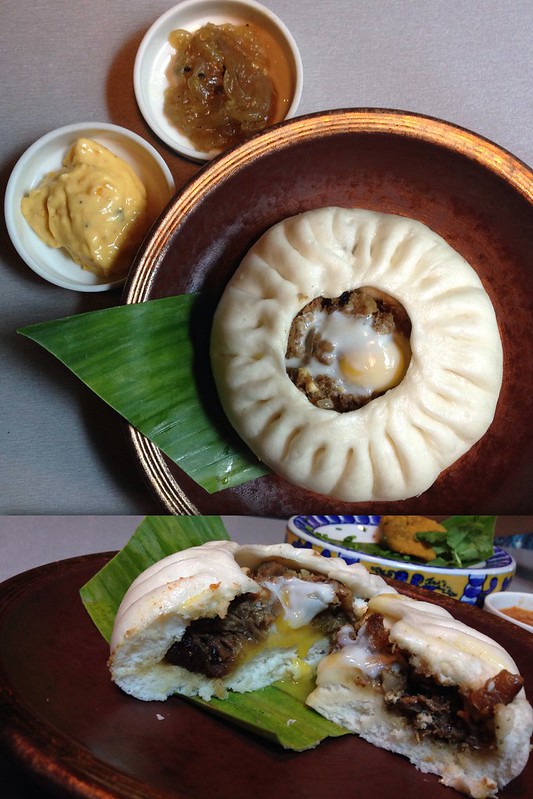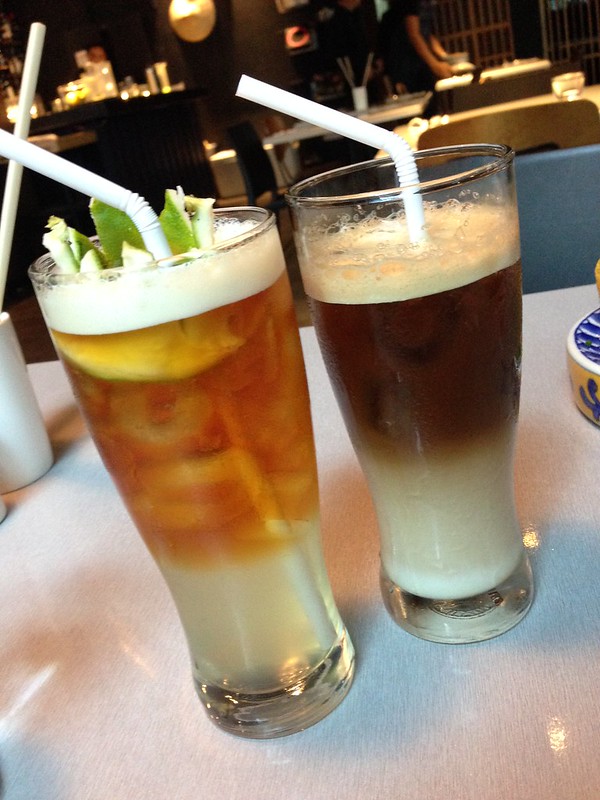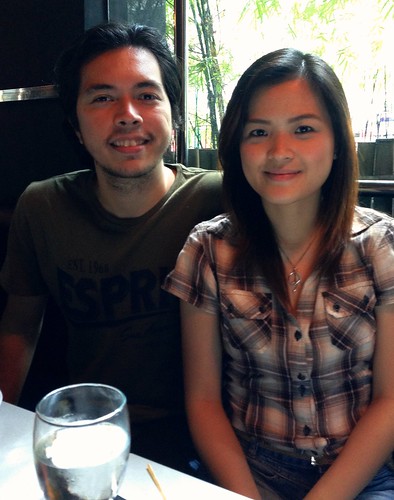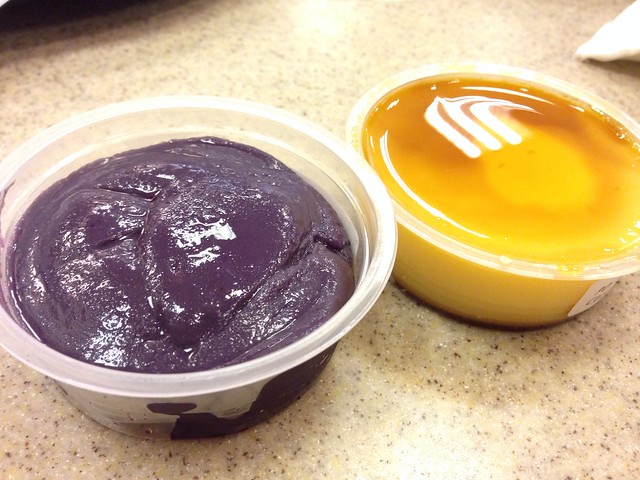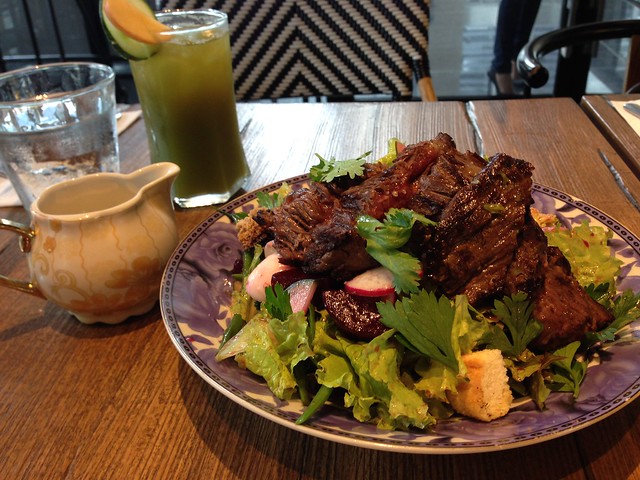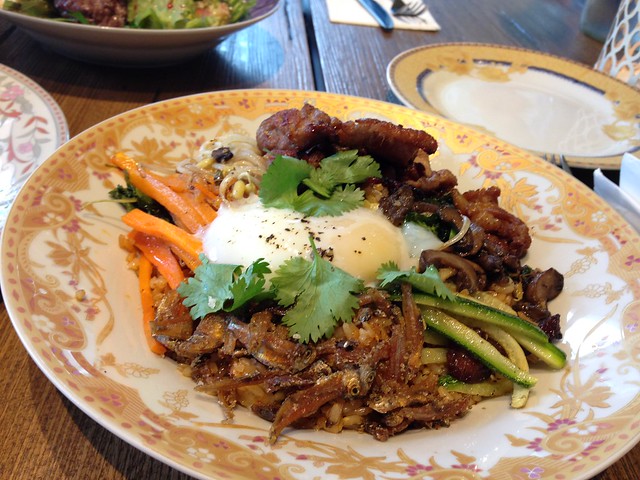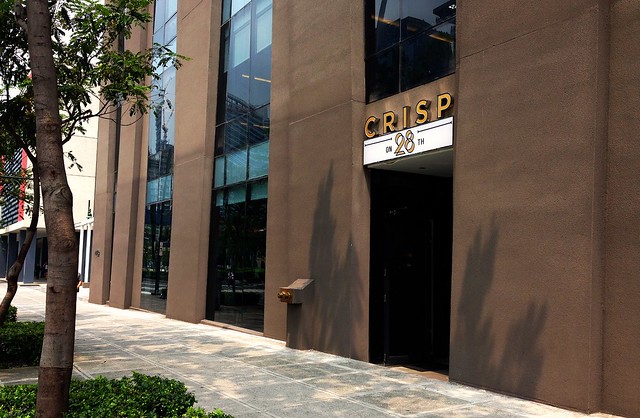In the first part of this series, I tackled what veganism is about and the good reasons for practicing it.
LINK: http://www.savvyaboutnothing.com/2016/06/my-take-on-veganism-part-i-why-do-it.html
The next question that needs to be explored is...
LINK: http://www.savvyaboutnothing.com/2016/06/my-take-on-veganism-part-i-why-do-it.html
The next question that needs to be explored is...
Why
not go vegan?
I
have considered this through every angle I can think of so far, as
well as every angle critics use that I have seen. This list also goes through the different challenges that may come up in your head in considering the merit of this lifestyle. Let me take you
through them one by one and assess them analytically.
Challenge
# 1: The Circle of Life
| Image from here. |
Under
'Personal Health' in the previous post, I have cited that we are biologically
herbivores. Behaviorally though, that is up to us. Practically since
birth, we have been taught that humans are at the top of the food
chain, since we have no predators. While that is true, we also have
the capacity to choose whether we are behaviorally herbivores or
omnivores. Since we are not biologically meant to eat meat, it is not
true that cows, pigs, and chickens exist simply to be our food. They
exist for themselves, and they supposedly have their natural place
within the food chain as well. If through domestication, they no
longer have their own predators as well (we may have killed off all
the other possible predators to protect our food), I believe we can
care for a sustainable population of them the same way we care for
other domesticated animals, the dog and the cat.
Yes,
this was all taught to us in school, by our parents, and may have
been done by humans for thousands of years, but these are not reasons
for us not to question the practice and make the choice for
ourselves. The times are ever changing. The entire world once
believed the earth was flat. In school, they taught us that Agapito
Flores invented the fluorescent light (I googled this recently and my
life has been a lie! Haha). Our reality now is what we will make it
to be.
Challenge
# 2: Christianity
Ah,
religion. Seems we can't avoid the topic. There are two reasons for
this, the question of the soul, and the actions of Jesus.
On
animals not having souls like humans - I'd like to think that if
humans did have souls, animals would also have souls that may not be
equal to those of humans, but equally deserving of respect. Let's
assume though that they do not have any sort of souls nor afterlife
at all, which is more realistic. We are still taught to be
compassionate, and that is not limited to humans. In biblical times,
animals were eaten as a social norm that science at that time hadn't
questioned yet. They had much less information and science to work with. With the minimal
population of humans, the impact on the planet was not severe either.
If we treat animals with cruelty and unnecessarily use them for food we do not need and any other use that we have alternatives for, what can then be
said about our souls?
On
Jesus eating meat - Jesus acted in accordance with the times that he
lived in. Back then, eating animals was generally the only diet they
were aware of in society.
They did not have access to the science and the food that we have.
Knowing the horrors that go in to an animal-based diet nowadays, as
well as the relative ease of living on a plant-based diet, I find it
hard to believe that God would not support a diet based on less
cruelty and more compassion. There is certainly nothing in the bible against not eating
meat, but there is plenty about care and compassion for animals and
fellow humans.
If
you'd like a scripture-based approach on this topic, here's a good
article: http://www.thisdishisvegetarian.com/2011/12/christianity-and-vegan-diet-how-i.html
We
should ask ourselves, though. Do
we really need a bible verse to tell us what we should feel is the
right thing to do? Let's
remember that the bible was written almost two millenia ago, so their
morals and beliefs will not always reflect our own. For instance,
during that time it was generally believed that the sun revolved
around the earth. With recent scientific discoveries, we are learning
how much other animals are so similar to us, especially in that they
are sentient.
All things considered, with the values I have grown up with as a Catholic, I believe going vegan is the right thing to do. I'll also leave this tweet right here for you to think about...
All things considered, with the values I have grown up with as a Catholic, I believe going vegan is the right thing to do. I'll also leave this tweet right here for you to think about...
Challenge # 3: Them Sensitive PlantsIt is contrary to human dignity to cause animals to suffer or die needlessly. #LaudatoSi— Pope Francis (@Pontifex) June 19, 2015
 |
| Image from here. |
The
usual quick counter to veganism is that plants have feelings too.
Veganism generally values sentience, which is the capacity to think and
feel, and in this case, the capacity to suffer. Plants simply do not
have the nervous systems required in order to feel pain. Sure, they
have receptors that aid them in particular reflexes, like our
own makahiya.
This does not however, translate to pain, and they do not have brains
to process the supposed pain as well. In fact, some plants are
dependent on animals for reproduction by being food for them in the
first place. They depend on natural herbivores, like us.
On
top of this, due to the sheer amount of plants needed to sustain and
manufacture meat through farm animals, if we chose to live on a
plant-based diet, we would still be killing vastly less plants than
through eating meat.
Challenge # 4: Caring for Animals is Naive
Understandably,
people have the predisposition to dismiss such ideologies as naive,
especially since the choice of not wanting to harm animals is a
decision an innocent 5 year old kid is more likely to make than an
adult. It is assumed that those who believe in veganism have a naive
outlook on life and are too "soft" to fully accept the
notion that we are on top of the food chain and that animals have to
die so that others can live.
 |
| Image from here. |
Quite
the contrary, however, those who choose to become vegans are very
morally strong. It takes a lot of discipline and moral fiber to
choose not to just 'go with the flow' or have a diet that society
expects you to have. It seems naive because that is how children
think, but vegans accept that there is a circle of life and death
does have to naturally occur in nature. I am of the belief though
that the way we humans live now, the way we utilize other animals,
the way we breed and eat them to our own ends is anything but
'natural'. I am no saintly saint either. It's not that I don't want
any animal to ever die. It's just that
- Animals do not need to die for us. Whether or not you believe we are natural herbivores, we can definitely live off of a plant-based diet, and these days it is becoming more and more possible to do so. Veganism advocate Gary Yourofsky has said that we only still eat animals for four reasons: Habit, Tradition, Convenience, and Taste.
- I respect and value innocent sentient life. I want to protect those without malice in their hearts and minds that are incapable of protecting themselves, and I think it would be selfish to limit that to just humans. It is our responsibility to make sure that they not only survive, but truly live. This, I believe, is why we have something in common with children. Children have an instinctive bond with animals before habit and society overwrite what we naturally tend to feel, and compassion gives way to culture once we become adults.
Isn't
not rethinking our own habits and beliefs infinitely more naive than
simply caring for animals?
Challenge
# 5: If cows are bad for the environment, I should eat more beef!
The
world doesn't work that way. The meat industry will not just let that
happen. We cannot eat the cows or any other animal into extinction if
they are already part of the meat industry. Eating more of them will
lead to more of them to be killed, which will mean demand has
increased, and more and more supply will be created. It may seem
counter-intuitive, but killing and eating more cows will lead to more
cows being artificially bred for the exact same purpose, destroying
more of our environment. Let's remember that it is not the cows'
fault for existing. Their number wouldn't reach unnatural highs at
1.4 billion in the world if we did not make it to be due to the
business need.
The
best thing to do for the environment is not to eat their meat. We do
not need to worry about cows overpopulating the earth, so eating meat
is no social service to the world.
Challenge
# 6: Complete Nutrients
Protein
is readily available through many foods like grains, green leafy
vegetables, beans, nuts and other legumes. There are also some
nutrients like B12 not available in our modern vegan diet, because
herbivores get this from the soil that is on the plants eaten. If we
prefer not to go full-natural and eat soil (which is my personal choice too!), supplements are very easy
to come by. Some would say supplements are unnatural, but if you
really think about it, it's not more unnatural than humans cooking
and eating meat.
Challenge
# 7: Livelihood
Yes,
if we all turn vegan overnight, fishermen and butchers and meat and
dairy farmers will all be out of jobs. It could never happen
overnight. If the vegan way is shared and taken in, then the
demand for animal-based food will be at a slow decline instead of
disappearing instantaneously. This will give people a chance to find
alternative livelihoods, which will be more difficult, but not
impossible. It won't be easy, but if we do not make a change, we will
be robbing our future descendants of livelihood as well, and a decent
world to live in.
The
biggest opponent of veganism will not be the innocent people whose
livelihoods depend on animals. The biggest opponents will be the
businessmen and the leaders of the meat, dairy, and egg industries worldwide. You can imagine how they will try to
obscure this from the public through lies, and it has been done for
years already. They will not benefit from this change unless they
evolve out of the animal industry into something else that is
profitable (risky option) or fight back against the vegan ideals
either directly, or indirectly through spreading misinformation about
the plant-based diet. This post of mine and all similar articles in
the net will be most unwelcome to them.
Challenge
# 8: Culture
Culture
is a very difficult thing to change. I'm finding out our cuisine is
very, very non-vegan. Our vegetable dishes also have either butter,
shreds of meat/fish/shrimp, or patis. Who
hasn't grown up eating hotdogs or tapsilog for
breakfast? Who doesn't love going to Tagaytay for bulalo?
Who doesn't celebrate small special moments with pizza, or having
burgers with friends?
It
has not just been a choice we have been making. It has been our way
of life. In some ways, culture defines our very lives. We have all
also been raised to be good, compassionate people who care for our
family, who care for our country, and who care for the world. A lot
of us are fierce dog-lovers or any sort of animal-lovers. Many of us
strive to be good people with our own sense of right and wrong. We
choose to do the right things, even if they are difficult or seemingly impossible.
With
this information now at hand, it is time for us to open our eyes and
realize that at this point, we have to define our culture through the
choices we make. We can no longer truly be both meat-eaters and
animal-lovers or a truly compassionate society, now that our
ignorance is gone and we know the truth about what goes into our
plates. From now on, once we know all this, we decide: are we a
culture that has compassion for others and does the right thing, or are we a
culture that simply enjoys a good sinigang?
We choose, we define our culture.
This
does not apply, of course, to the less fortunate who do not have the
means to change their diet at all. If we do have the means though, we
have the responsibility.
Challenge
# 9: Money, money
It
isn't necessarily more expensive to go vegan. I've actually spent
less on food since changing my diet. There will be instances where I
would have to turn down free food, and that's a shame, but eating
mostly vegetables, beans, fruits, rice and nuts hasn't been as
expensive as eating meat, dairy, and fish. I have been eating simpler
though, and there is naturally less variety compared to when I ate
everything. I also do not search out vegan restaurants, and I haven't
tried any yet, actually. They seem more expensive than other
restaurants right now since they are so rare. When eating out, I
usually search out the vegan option in normal restaurants, like pasta
(oil or tomato-based), salad, or veggies and rice. These are also
usually cheaper than meat dishes.
Let's
not expect everyone to go vegan though. Of course those who are less
fortunate should not have to turn down free or cheaper/more readily available
non-vegan food. We can just say that financially, if we can live on a
plant-based diet, we should. If we financially can't, then we need
not right now. With power, comes responsibility.
Challenge
# 10: It will mean admitting I am wrong.
This
will probably be an unspoken difficulty for most. The toughest part
in entertaining the thought that veganism might be the right thing to
do, is that it will mean that we have been doing something wrong all
our lives. Even more than that, we will be admitting that what our
parents taught us is wrong, and what our entire clan has been doing
for the past hundreds of years is wrong. That is not easy to accept.
I
personally regret being a very carnivorous person for the first 30 years of my life. I also regret the damage that has been done from
what the whole human race has been doing. However I feel, I do not
condemn nor blame my parents for how they or I have been living.
Humanity is constantly evolving and as we gain wisdom and advance in
the realm of science, we are learning new things every day. We cannot
blame the actions of the past if it was done out of habit without
knowing or really thinking about the moral and environmental impact
of our actions.
Today,
we know more than we ever have, and there are good people out there
who are spreading the idea of this new way of living. If this is
something we find ourselves believing, then we just need to accept
that we believe our old habits in food are wrong. There's no shame in
that, and there's no blame that needs to be thrown to those in the
past. We simply move forward, because that is what matters.
Challenge
# 11: Sarap
eh!
There
really is no denying how difficult the switch to plant-based food is.
People have been saying that I got to switch easily because I don't
love food as much as they do. That couldn't be further from the
truth. I just get to follow through on my difficult choice because of
the reasons I have for doing it. Truth be told, my own health wasn't
as strong a reason for me in the past. When my only dietary goal was staying
healthy, I would mostly cut down on quantity but still occasionally
eat 10 slices of pizza (not an exaggeration) or come back from
Vikings or Saisaki at least 5 pounds heavier. Hell, this very blog is
a testament to a mere fraction of how much I have eaten in the past.
I
only truly found the will to do this for good (though it's only been
a month and a half) once my reason became compassion. Once I realized
what was really going on, I decided I no longer wanted to be a part
of that, even if it meant I would end up with less variety in my diet
or less delicious food. Sadly my favourite food ever used to be
sashimi, pizza, and steak. I absolutely loved anything with cheese on
it. Knowing the truth changed all that. I couldn't enjoy my food
anymore knowing it comes at the expense of another. The environment
also something I consider, but I already had the reason I needed in
animal equality and compassion.
| It doesn't have to be just salad! Image from here. |
Going
vegan is not the equivalent of amputating your tastebuds, not
nearly. It just entails saying goodbye to all or most of the
delicious food you know and love and getting introduced to all new
favourite food in your new diet to take their place. It's only been a short while, but
there are several snacks and dishes I have really enjoyed, like
vegetable curry, hummus, beans and rice, Vitamilk and Starbucks' soy
latte. I know there is so much more out there that I cannot wait to
try. A lot of junkfood, like Oreos, is actually vegan, but I stay
away for health reasons. Being a junkfood vegan isn't sustainable
either!
Challenge
# 12: It won't make a difference.
Undertaking
the lifestyle change of going vegan while the rest of the world stays
the same might naturally feel futile. Rather than focusing on how
much you won't affect the world, you can focus on how much you will.
Sure, your own consumption will not matter greatly to the world, but
will it not mean the world to your own health, your own conscience,
and every innocent animal that does not have to be raised and killed
in suffering as a result?
| Your decision will sure matter to this guy. Image from here. |
You
will not be able to change the world directly, but you will be part
of a grander revolution in humans rethinking the way we eat. Your
decision could easily inspire others and cause more good than you can
imagine. You have the potential to teach your kids to value
compassion in everything they do, and to know the cost of what goes
into the food we eat. There are so many possibilities. You have the
power to leave the world a better place than it would have been.
Challenge
# 13: I can't go all the way!
Let's
say you appreciate what vegans try to do, but can't quite imagine
yourself doing it. Don't worry. We shouldn't think in extremes. While
every step you take towards veganism will be better for the animals,
the planet and yourself, the moment of weakness where you slip back
into old habits does not undo all the good you have done. If you
believe in it, then aim to do as much as reasonably possible for
yourself. If you can remove just meat, then do that. If you feel you
can't let go of fish, then try to let go of everything else first. It
is better to try and fail than to give up before you begin. You can
always try again. Try it out for a week, a month, a year, and if it
feels good, a lifetime.
Not being able to do everything is no excuse for not doing everything you can.
Challenge
# 14: I don't care.
If
you do not care about animals, yourself, your family, the world and
its future, the world your grandchildren will live in, then there's
nothing anyone can say or do to get you to consider veganism.
I
just pose one question though, if the previous sentence applies to
you: What do you live for? You probably live for pleasure or success
or live in apathy (as I have before), or many different possible
things. You might want to rethink that. It's possible that living for
something bigger than yourself, living for the world and those who
live in it with us might be a bit more fulfilling.
In summary...
That is everything I have encountered so far. Are there other challenges or counter-arguments you've heard or felt about veganism? Let me know by commenting below, e-mailing me at joaquinigo@gmail.com, or tweeting me!
In the last part, I talk about how one would begin transitioning into veganism.
PART III - How would I begin?






